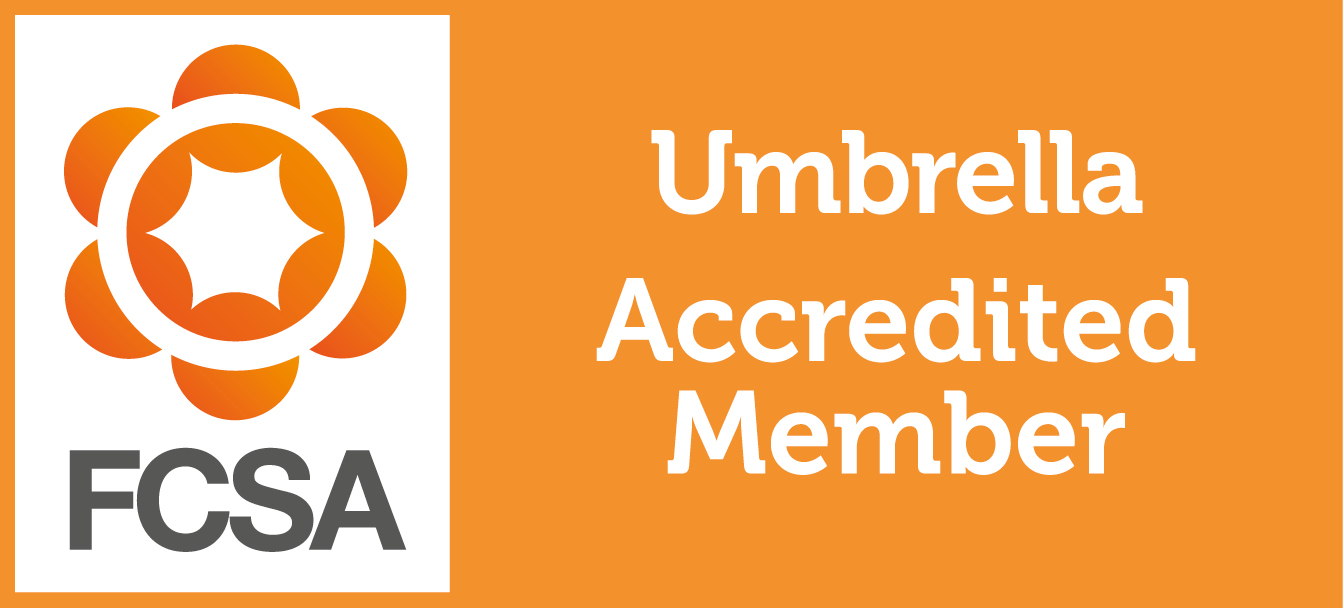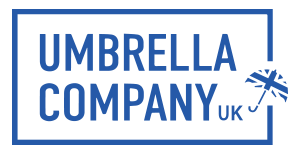
Whether you’re new to contracting or are a limited company director who may require an umbrella company for future assignments, understanding how an umbrella company works is vital when deciding which provider to use. There is a lot of information that you need to take on board, and we hope the following summary is useful.
Key legislation to be aware of as an umbrella company contractor
As a contractor, there are certain pieces of legislation that you should be aware of to ensure you use a compliant umbrella company. It’s also really important that you operate ethically too. Compliant umbrella companies are there to help you pay the legal amount of tax and National Insurance Contributions (NICs). However, if you choose a non-compliant payroll provider – you could be heavily punished by HMRC if you’re investigated in the future.
IR35
IR35 (or off-payroll legislation as it is now known) came into effect in April 2000 as a way for HMRC to collect Income Tax and NICs from disguised employees.
A disguised employee is someone who supplies their services to an end client via an intermediary (for example a limited company), who would otherwise be an employee if they were not operating through that intermediary.
HMRC believed that many contractors were operating in a similar way to permanent employees, but were not paying the same amount of tax or NI as they were taking advantage of the tax relief.
As a result, off-payroll in the public sector was introduced in April 2017 to tackle the perceived tax avoidance in the public domain.
If you are operating in the public sector, it is the responsibility of the public authority you are working for to determine your employment status (inside or outside IR35).
If off-payroll working rules apply to your role, the fee payer (for example your umbrella company) will be responsible for processing your tax and NIC deductions and paying them to HMRC on your behalf.
If you are deemed outside IR35, you can continue to operate through your limited company and pay yourself with a combination of salary and dividends.
HMRC will roll out the private-sector reforms on the 6th April 2021, and the same rules will apply.
You can access more detailed information about the legislation here.
Tax avoidance schemes
Unfortunately, with the changes to off-payroll in the private sector set to come into effect from April 2021, the amount of tax avoidance schemes targeting contractors are only going to increase.
It is now more important than ever to conduct thorough due diligence and ensure you are only using compliant providers.
Offshore intermediaries (or tax avoidance schemes) maximise contractors take home pay by helping them to avoid paying the correct amount of tax and NICs. Through these schemes, contractors are paid a small salary which is taxed, and the rest will be paid via a job board, loan scheme or trust, which is untaxed. These schemes are established with the intention that the worker will never repay the loan, and therefore in HMRC’s eyes, this income is just like a regular salary and should be taxed.
Ultimately, it is your decision which provider you use, but HMRC takes tax avoidance very seriously (as evidenced by the Loan Charge), and you will be required to pay back every penny of tax you owe if they find you’ve used one.
You can find more information about how to spot a tax avoidance scheme and the penalties of using one here.
The Loan Charge
The Loan Charge is an anti-avoidance measure, introduced in the Finance Act 2016 as a way for HMRC to reclaim underpaid tax by workers who have previously used a disguised remuneration scheme, or tax avoidance scheme in the past.
HMRC has the power to reclaim underpaid tax as far back as the 9th December 2010, which has left some contractors facing large tax bills. If you think you may have used a tax avoidance scheme in the past, we advise you contact HMRC immediately to settle your outstanding tax affairs.
Travel and subsistence
Umbrella companies were previously able to allow employees to claim tax relief for many expenses in addition to travel and subsistence, but this is no longer the case.
Significant changes to the rules which took effect from April 2016 mean that if you are under Supervision, Direction and Control during your contract, you can no longer claim tax relief on travel and subsistence expenses.
The changes were implemented as HMRC believed that a lot of umbrella employees were operating in a similar way to permanent employees, except permanent employees are not able to take advantage of the tax relief.
Be very wary of umbrella companies advertising the ability to claim vast amounts of expenses or providers who put pressure on you to claim expenses; these are most likely not legitimate.
How to choose an umbrella company
If you are inside IR35, new to contracting, or are testing the water to see if it is for you, these simple steps will help you identify a compliant and reliable provider.
Always look for the FCSA accreditation
A simple indication that an umbrella company is operating ethically within the market is the FCSA logo or accreditation. The FCSA is an independent auditor of umbrella companies and contractor accountants to ensure they are adhering to HMRC legislation and UK tax law.
Using an FCSA accredited umbrella company will ensure you can work on temporary assignments with complete peace of mind that your pay will be processed compliantly. The umbrella company will ensure the correct and legal amount of tax and NICs are sent to HMRC on your behalf. You will never face an unexpected tax bill.
Be careful of companies offering high take home pay retention
Despite the introduction of the Loan Charge, tax avoidance schemes targeting contractors and freelancers are still prevalent. For example, HMRC’s Spotlight 54 recently highlighted a surge in tax avoidance schemes targeting workers returning to the NHS to fight the COVID-19 pandemic.
If you are working through an umbrella company in the UK, you should be paying Income Tax, and NICs, which combined are higher than 10%. Therefore, keeping 90% is impossible, and the company is not processing pay legitimately.
If you see an umbrella company advertising “90% take home pay,” they are more than likely a tax avoidance scheme and could land you in a lot of trouble with HMRC.
Conduct thorough due diligence
We cannot stress enough the importance of conducting thorough due diligence on any provider you are considering using. HMRC is stepping up their efforts to punish anyone using a tax avoidance scheme, and it is not worth taking the risk. Aside from looking for the FCSA accreditation, here are some other key questions you should consider:
- Is the umbrella company based in the UK and are all of its operations in the UK?
- Has the company got good reviews online, or have other contractors had problems with the payroll process or provider?
- Most compliant umbrella companies will provide you with Employers Liability Insurance, Public Liability Insurance and Professional Indemnity Insurance – are these insurances included as part of the service?
- Have they been assigned a Scheme Reference Number (SRN) by HMRC? If they have – you should avoid them at all costs. HMRC will assign suspected tax avoidances with an SRN while they investigate them further.
- Do they have a good reputation within the industry, and do they feature on agencies preferred supplier lists or approved supplier lists?
Understand the deductions that you will see to your pay
The only way a compliant umbrella company can compete within the marketplace is the weekly or monthly margin they charge. A standard margin is between £15-25 per week, but you may find a better deal if the provider is running a special introductory promotion.
When you work through an umbrella company, you will be taxed like a regular employee, and the umbrella company will send your Income Tax and NICs payments to HMRC on your behalf. You will also see additional deductions for employment costs (Employers NICs and Apprenticeship Levy) and Holiday Pay – all which are taken from your assignment rate.
The margin is the only thing that will alter your take home pay, and this will only be by a couple of pounds at most! The tax deductions will not differ between providers as these are determined by your tax code, which HMRC will send to your chosen provider after you register.
Before you register with an umbrella company, they will provide you with a take-home pay illustration which will show the deductions you can expect to see once you start being paid through them. A good umbrella company will explain these tax deductions to you in detail and ensure you understand what each one is for.
You can find more information about the deductions compliant umbrella companies will make to your pay on our blog.
Always choose a provider that is knowledgeable and informative
There is a lot of legislation surrounding contracting that can be confusing, especially if you are new to the industry. Therefore, it is really important you register with a provider who can offer advice and information from the outset, and throughout your time with them.
Before you register with an umbrella company, take a look at their website and the content they are posting. Are the website and blog articles informative and do they provide detailed guidance on the legislation that affects contractors?
We also recommend asking your chosen umbrella company any questions you may have before you register. A compliant umbrella company will be happy to take the time to go through your queries and make sure you are confident about the service, and the company before you sign up.
What happens after you’ve joined an umbrella company?
Once you’ve registered with an umbrella company, your ongoing administration is very minimal.
You will be given a contract of employment
The umbrella company will send you a contract of employment which you will need to review and sign. They will also require a clear photocopy of your ID and right to work documents which they must have before they are legally allowed to pay you.
Submit your timesheets
Depending on your payment schedule, you will submit a signed copy of your timesheet each week/month to your umbrella company. They will then raise an invoice with your recruitment agency or end client on your behalf for the work you’ve completed.
You will be paid after tax deductions
The umbrella company will process your tax deductions which will be paid to HMRC on your behalf, and your net salary will be paid into your bank account.
Are you ready to register with an FCSA accredited umbrella company?
If you are interested in registering with a compliant, FCSA accredited umbrella company – you’ve come to the right place! Umbrella Company UK offers an easy setup, hassle-free payroll service for contractors and freelancers in the UK. Our expert team will provide guidance and support throughout your time with us.
For a free take home pay illustration or to begin the registration process, give our friendly team a call on 01707 669023.
We look forward to speaking with you!






